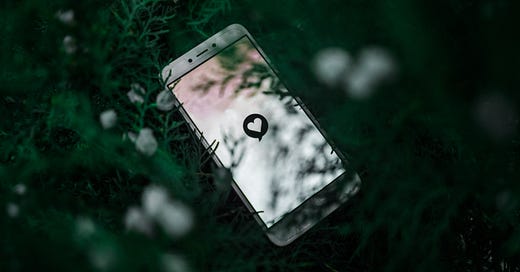The reign of terrorised dating: a modern experience for the Gen Z women
While tech is revolutionising our dating experience, thousands of rapes are committed by online predators, making women more vulnerable
The digital age is revolutionising the way which we communicate with others, we have become easily contactable, accessible, and approachable with the growth of our ever more visible online presences.
As a woman who has been warned against the dangers of online dating, where I may not know who is at the other end of the phone, the accessibility of my profile is a daunting prospect. This begs the question: does our visibility open the door to a sense of vulnerability?
The Digital landscape for ‘love’
This spring, Netflix released two documentaries regarding false identities. We are all now familiar with the stories of Anna Delvey and the Tinder swindler who managed to create expensively extravagant lifestyles, merely with their use of dating apps and social media. From the safety of our sofa, we question how the victims of these scandals did not realise that the wool was being pulled over their eyes, but the reality of the dating world is as elusive as the question: who was the real Anna Delvey?
According to Phactual, around 10% of new accounts are scammers, while a tenth of sex offenders use dating sites to meet people. With statistics such as these, or the fact that at least 36% of women will experience some sort of extremely or very upsetting interaction whilst dating online, dating’s technological revolution seems to have unleashed a new wave of ‘stranger danger’ for its users.
Speaking to multiple women online, and through google meet, we discussed their experiences with the more sinister side to online dating experiences, as well as the negative stereotypes surrounding dating apps and whether their position as a woman made them easier targets for predatorial male attention.
Fetishes, kinks, and unnerving meet-cutes
The majority of women that I spoke to found their experiences with men online to be shrouded in deceit, or threatening in some way. For recent graduate Kirsty Thomson, 22, the contacts that she made through dating sites like tinder and a sugar baby site which she was asked to review the user experience for, greeted her with messages of a violent nature and an encounter with bizarre fetishes.
‘He was making all these strange jokes about how small I was…how he could pick me up and run me away somewhere.’—Kirsty Thomson
Kirsty and I discussed the unusual obsession that her Tinder date had with her size, who as a 6’ 7” male, made her feel particularly uncomfortable and vulnerable. Kirsty stated that she felt isolated with this man, and that even if she did run away, she was sure that he would have caught her anyway. She told me that his size alone had not been disclosed in the messages prior to their meeting, however, the persistence in making her feel as though she could be abducted if she was to walk away from him, paired with a subconscious guilt over making excuses to leave, made the experience an altogether strange and horrible experience.
Our conversation turned to the more ominous thread of messages which took place on a sugar baby site, which Kirsty was researching for an article. Here she came across a married man, looking to pay her to be ‘gang-banged’ by him and his friends, insinuating a desire or ‘fetish’ for consensual rape. The mutual response to this type of proposition was instant shock, firstly due to the violent nature to his request, but secondly, to how this remark from a stranger was so bold. The fact that he was sending these messages from behind a screen, created an element of distance from the perverseness of his wish, which Kirsty stated allowed him to retract this saying ‘I’m just joking’.
As Nancy Jo Sales stated in her Guardian article: ‘dating apps have led to the normalisation of abuses which would have been considered appalling’. Where an unsolicited photo or harassing images have become common place, or even less shocking as we are able to click off them in seconds, we brush past the fact that our right to consent has been violated.
Dating Faux pas or misconception?
Finding love has always been marketed and romanticised in a way that has created unrealistic expectations or scenarios. What is described to us in a Disney film, displaying a candle lit dinner or chance meeting in the street, is so far from reality, where choice, time, and convenience are the defining factors for finding true love. Speaking to women who have used dating sites, the credibility of finding a potential partner through this method was questioned.
‘It’s hard to tell if their actions are genuine or not. I feel like sometimes (men) look at girls as objects, merely a toy for their pleasure’ – Lily Taylor
The resounding feeling was that the intentions of men within dating apps were particularly hazy, focusing on how they were ‘just looking for quick hook-ups’, and there was a sense of embarrassment when admitting to finding partners here.
As far as the modern dating experience goes, the women who I spoke to, share a common predisposed opinion that it is extremely difficult to identify true characters online, and this influenced whether they looked for a long-term partner through an app. One of the women highlighted her experience with a “private kind of guy”, who turned out to be hiding his social media and effectively leading a double life with another girlfriend.
Although there have been moves made to check the credibility of dating app users, the women who were spoken to mention the fact that their experiences had made them much more wary of using these apps, which shows there is an inherent problem with the way that dating apps are conducted.






